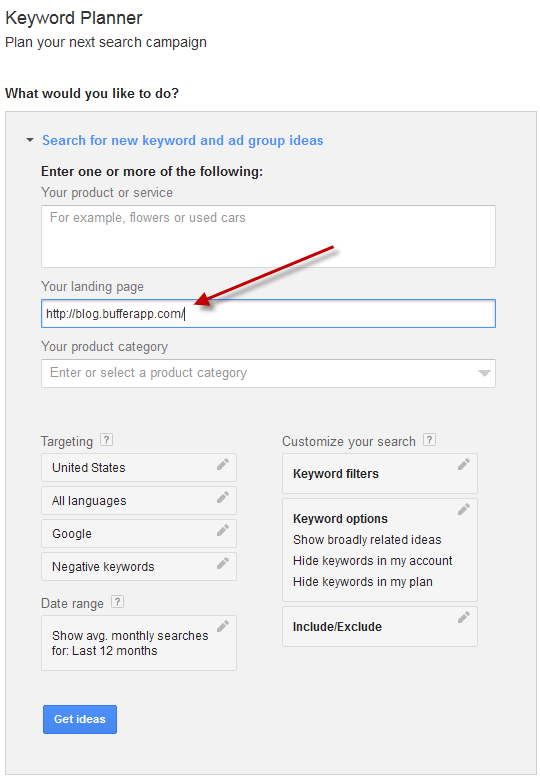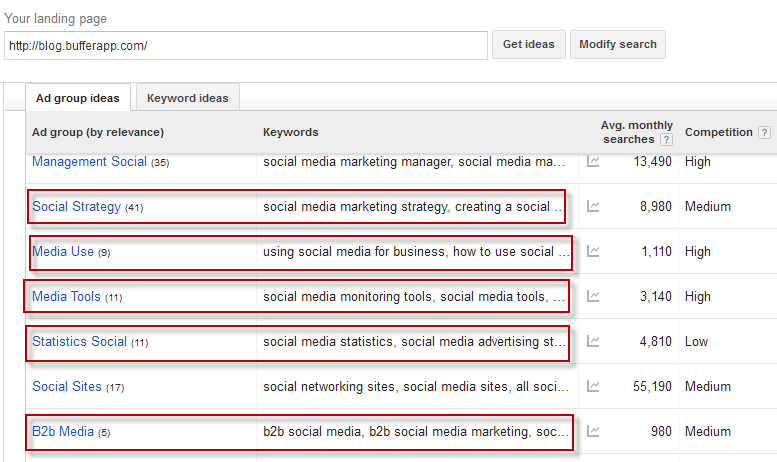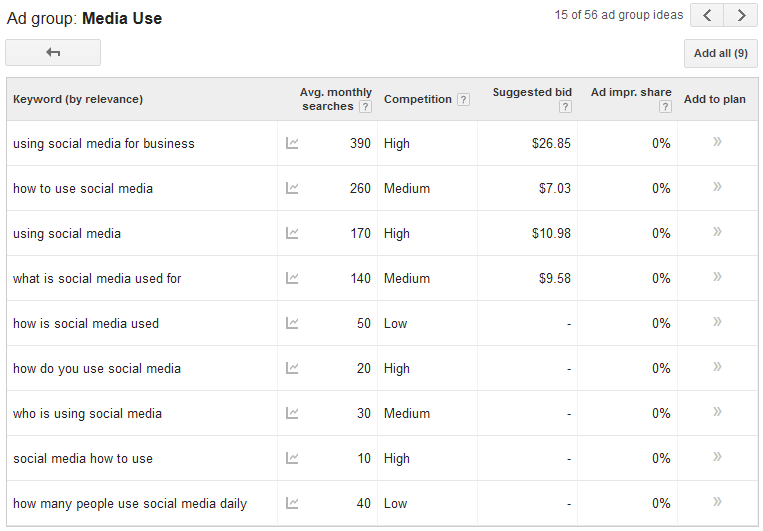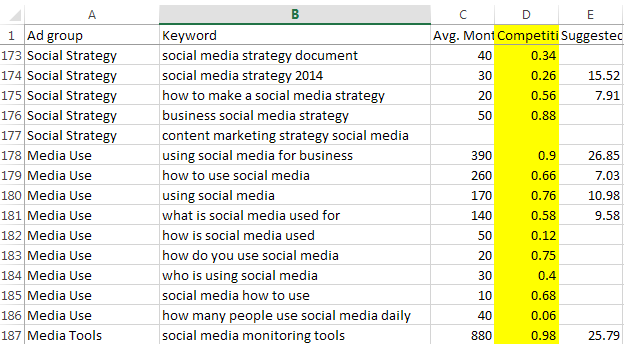
By Elisa Gabbert, from Search Engine Journal – http://bit.ly/1rNx8H6
Larry Kim and Will Critchlow from Distilled recently did a great webinar revealing all their personal keyword research strategies. It went pretty in-depth, so if you’re in the mood for digging in, scroll to the bottom to see the slides and video.
Today, I just want to share three quick tips inspired by the webinar. If you’re looking to accomplish something beyond just dumping a seed term into a keyword tool, these clever tricks should jump-start your next keyword research session.
#1: Spark Content Ideas With Google Suggest Wild Cards
In the webinar, Will mentions picking this tip up from Tom Anthony at Distilled. You’ve probably used Google Suggest as a means of keyword research before, but I love this trick because it allows you to mine suggestions that don’t just come at the end of the phrase you’re typing.
Here’s what I mean: normally, when you start typing a search query, Google offers suggestions to complete the phrase:
What these Google suggestions are based on is real content that lives on the web. Google is trying to connect searchers with the content they might be looking for. As a marketer, this is helpful to you because it shows you what already exists out there in the niches where you operate, and if you don’t have content on those topics yet, maybe you should.
But what if you want suggestions for terms that come at the beginning or middle of a keyword phrase? That’s where the wild cards come in. You can use an underscore character anywhere in your search query to get suggestions for searches that fill in that blank. For example:
If you run a lifestyle blog based in Colorado, this would be a great way to discover new topics to cover.
Here are a few more examples for inspiration:
Pretty neat, eh? (Note that not every wild card search you try will work – sometimes there’s not enough volume and Google defaults to its usual suggestions.)
#2: Steal Keyword Group Ideas From Your Hero’s Home Page
I don’t like to say “steal from your competitors” because that sounds kind of uncool. Instead, think of it as imitating your heroes. Are there sites in your niche that you look up to because they always seem to be killing it? In web marketing, Moz and Buffer are a couple of my blog heroes.
Keyword Planner has a feature that allows you to drop in a URL to see which keywords people are using to arrive at the site. Maybe they expected you to use it for your own site, but guess what? You can put any URL in there! <evil laughter>
Open up Keyword Planner and drop your hero’s URL into the “Your landing page” field, then click “Get ideas”:
Usually I focus on the “keyword ideas” tab, but for this exercise, I like to focus on the ad group ideas tab, because I’m not worried about the search volume of any particular keyword, I’m just looking for topic themes.
A lot of these look interesting right off the bat. And if I drill down into one of the groups, I get a better picture of the intent of these searchers. (Intent should always inform the approach of your content.)
Before you get started targeting this topic, don’t forget to Google a few of these keywords and see what’s already ranking on page 1. To rank for a keyword, you should be creating something more valuable that what’s already out there.
#3: Prioritize Keywords With Larry’s Secret Competitive Index Formula
In the webinar, Larry reveals the formula we use to prioritize keyword research and content creation. He calls it “Larry’s Priority.” Here’s how it works: Take the number of monthly searches for the keyword, multiply that by the suggested bid, then divide it by the competition level on that keyword.
What this does is give you an idea of how realistic it is for you to target keywords with high commercial value. You want to go after keywords with some volume, because they’ll have a better return in terms of traffic. But you don’t necessarily want to go after the most competitive keywords, because you’re less likely to be able to rank for them. You’re looking for a sweet spot.
Note that Keyword Planner doesn’t give you a real number value for “competition level” unless you export the keyword plan into a CSV. Instead you’ll just see “high,” “medium,” or “low.” When you download the plan into a spreadsheet, you can see the competition level as a real value between 0 and 1 – see the highlighted column below:
So let’s run the formula on a few keywords. For “using social media for business,” the average monthly search volume is 390, the suggested bid is 26.85, and the competition level is 0.9. So:
390 * 26.85 / 0.9 = 11635
For “how to use social media,” the average monthly search volume is 260, the suggested bid is 7.03, and the competition level is 0.66:
260 * 7.03 / 0.66 = 2769.39
For “using social media,” the average monthly search volume is 170, the suggested bid is 10.98, and the competition level is 0.76:
170 * 10.98 / 0.76 = 2456.05
To use an example outside this ad group, “social media monitoring tools,” with a volume of 880, a suggested bid of 25.79, and competition level of 0.98, gets a final “Larry’s Priority” score of 23158.37. So if you rank these keywords from high to low by Larry’s number, you get:
- social media monitoring tools
- using social media for business
- how to use social media
- using social media
The highest number is the one that would give you the most potential return. If you have a big-time domain and can rank pretty easily on competitive keywords, start at the top. If you’re a newer, smaller site and can’t really play with the big guns yet, it might make more sense to start in the middle of the sorted keyword research list – these aren’t the “monster” keywords in your niche, but they’re also less competitive, and therefore easier to rank on.
Watch The Whole Keyword Research Webinar
Hungry for more, grasshoppers? You can view all the slides from the webinar here:
Or watch the video below:
This post originally appeared on WordStream.










